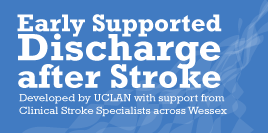 |
Mood |
Recommendations 6.35.1
Depression and anxiety
A. Any patient considered to have depression or anxiety should be assessed for other mood disorders.
B. Patients with mild or moderate symptoms of depression should be given information, support and advice (see recommendation 6.34.1G) and considered for one or more of the following interventions:
- increased social interaction;
- increased exercise;
- goal setting;
- other psychosocial interventions.
C. Patients prescribed antidepressant drug treatment for depression or anxiety should be monitored for known adverse effects, and treatment continued for at least 4 months beyond initial recovery. If the patient’s mood has not improved 2-4 weeks after initiating treatment, check that the patient is taking the medicine as prescribed. If they are then, consider increasing the dose or changing to another antidepressant.
D. Patients receiving drug treatment for depression or anxiety should have it reviewed regularly to assess continued need.
E. Brief, structured psychological therapy should be considered for patients with depression. Therapy will need to be adapted for use in those with neurological conditions.
F. Antidepressant treatment should not be used routinely to prevent the onset of depression.
Sources 6.35.2
A-C. Consensus
D. Hackett et al. 2009a; Hackett et al. 2009b; Mitchell et al. 2009; National Institute for Health and Clinical Excellence 2009a
E. National Institute for Health and Clinical Excellence 2009a; Pinquart and Duberstein 2007; Wolitzky et al. 2008; Cicerone et al. 2008; Mitchell et al. 2009; Watkins et al. 2011
F Hackett et al. 2009a
Recommendations 6.36.1
Emotionalism
A. Any patient who persistently cries or laughs in unexpected situations or who is upset by their fluctuating emotional state should be assessed by a specialist or member of the stroke team trained in the assessment of emotionalism.
B. Any patient diagnosed with emotionalism should, when they show increased emotional behaviour, be appropriately distracted from the provoking stimuli.
C. Patients with severe, persistent or troublesome emotionalism should be given antidepressant drug treatment, monitoring the frequency of crying to check effectiveness. Patients should be monitored for known adverse effects. If the emotionalism has not improved 2-4 weeks after initiating treatment, check that the patient is taking the medicine as prescribed. If they are then consider increasing the dose or changing to another antidepressant.
Sources 6.36.2
A-B. Consensus
C. Hackett et al. 2010
 |